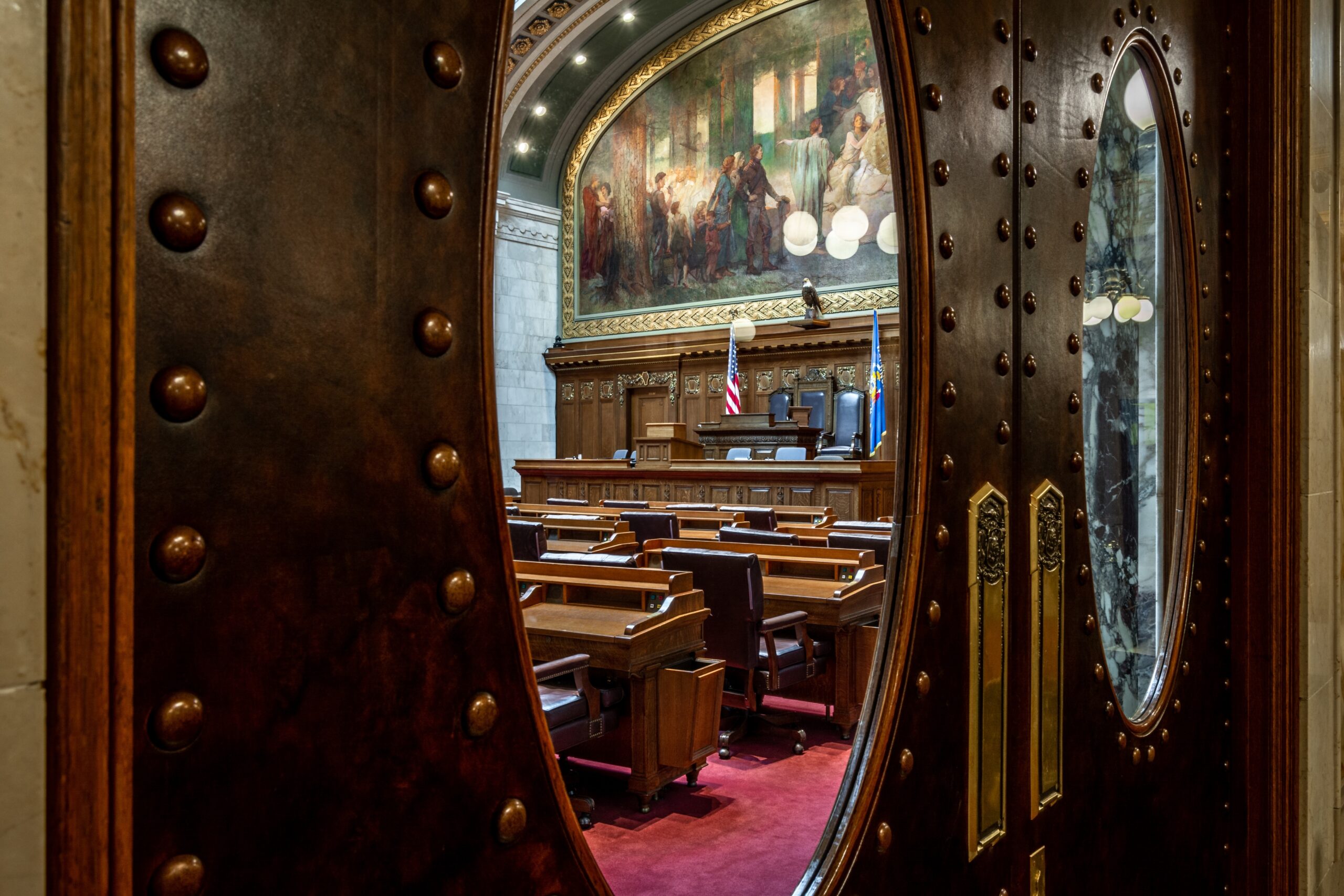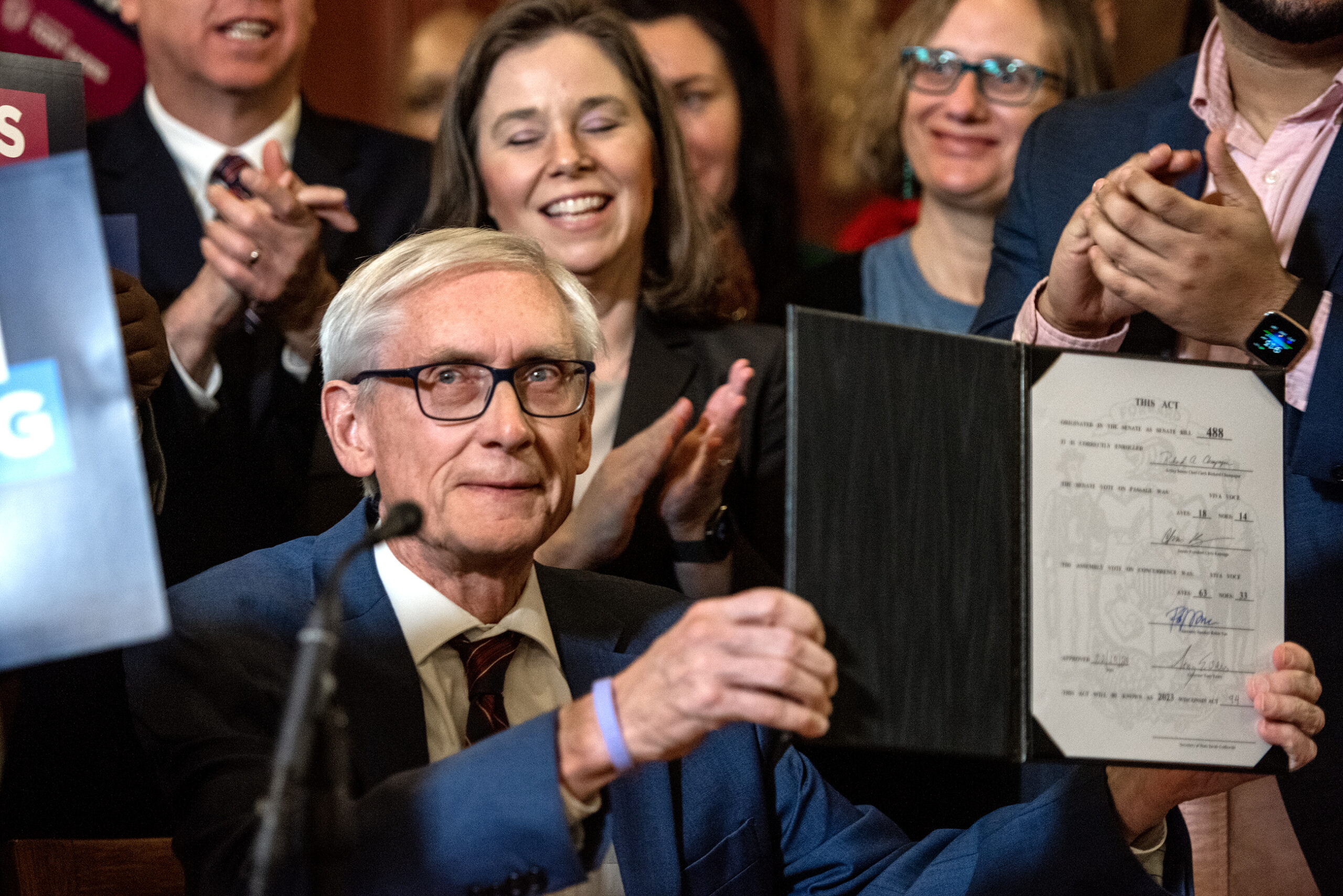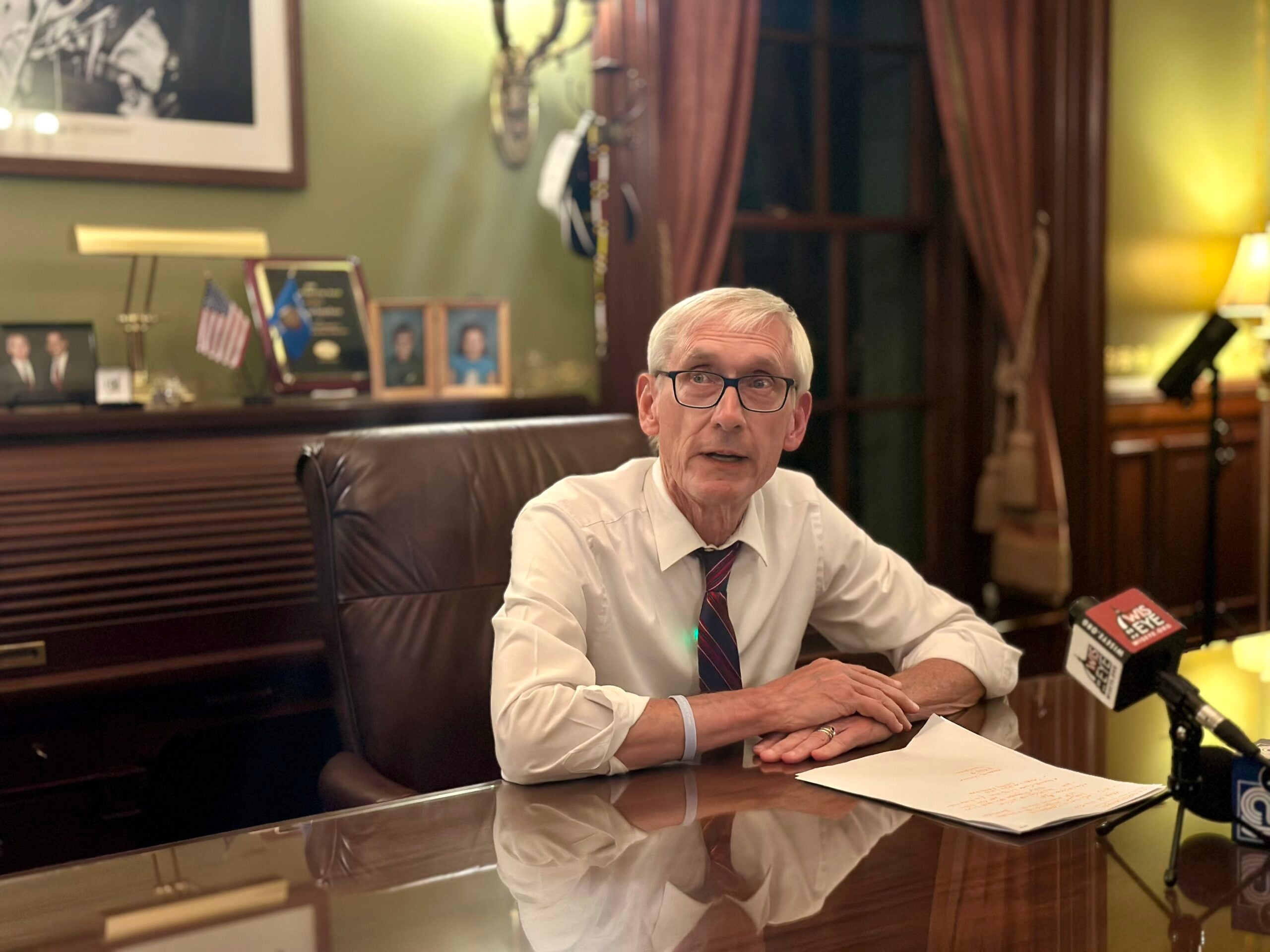The state Assembly approved a rule change Thursday that gives Republicans unlimited shots at overriding gubernatorial vetoes.
The measure passed 61-35, with all Assembly Republicans voting in favor and Democrats voting against.
Under the new rule, the GOP-controlled Assembly will get as many chances as legislators would like to reach the necessary two-thirds threshold to override vetoes made by Democratic Gov. Tony Evers. Current law only allows one veto override attempt.
News with a little more humanity
WPR’s “Wisconsin Today” newsletter keeps you connected to the state you love without feeling overwhelmed. No paywall. No agenda. No corporate filter.
Current law also says a two-thirds vote is only required by members “present” at the time of the vote — opponents of the proposed change say that would make it possible for Republicans to call multiple override votes with little notice and without Democratic attendance. They say that could open up Wisconsin to a situation similar to one seen earlier this year in North Carolina, when GOP lawmakers held an important vote while Democratic lawmakers were away attending a Sept. 11, 2001 memorial service.
“It allows for the same kind of gamesmanship that we saw in North Carolina,” said Democratic Minority Leader Gordon Hintz, D-Oshkosh, before Thursday’s vote. “That was disgusting, it was anti-democratic and I think it was corrupt.”
Hintz accused Assembly Speaker Robin Vos, R-Rochester, of being “drunk with power.”
A spokeswoman for Evers issued a statement after the vote saying, “It’s a shame that Republicans in Wisconsin continue to lower the bar for decency and respect in our state.”
Disabled Democratic Lawmaker Issues Plea
Democrats also raised concerns Thursday that the veto rule change was initially paired with a change requested months ago by a disabled Democratic state lawmaker.
That request, issued by state Rep. Jimmy Anderson, D-Fitchburg, called for lifting an Assembly prohibition on calling into committee meetings. Anderson, who is quadriplegic, said his disability prevents him from attending lengthy meetings in person.
During floor debate, Anderson issued an emotional plea to separate the disability accomodation from the veto proposal and other rule changes. Other changes in the package include a measure that would allow Republican lawmakers to set debate times for bills without Democrats’ consent and bar Democrats from taking breaks from Assembly floor sessions to discuss bills.
“It is entirely within the majority’s power to separate my disability accommodation from the rest of the resolution,” Anderson said, noting he had made that request to GOP leaders and was denied. “How small and petty it is that the majority is forcing me to vote against my own disability accommodation.”
After hours of debate, Republicans agreed to separate the disability accommodation from the veto override language. However, they left it linked to the rule giving Republicans more power over setting debate times, as well as the rule that would allow blocking Democratic meetings.
Because of that, Anderson joined all Democrats in voting against the proposal.
“I do see that the majority is at least trying to make an attempt to do this in a conciliatory fashion,” Anderson said. “But I do believe that all members on my side of the aisle should vote against it because it does remove their voice from this process.”
Anderson became quadriplegic several years ago after a drunken driver ran a stop sign and hit the car he was in along with his mother, father and 14-year-old brother. Anderson was the only survivor of his family from the crash.
Anderson has said his disability makes it difficult to attend lengthy legislative meetings, but went into detail during Thursday’s debate about the obstacles he faces. Anderson used an uncommon procedural move to bring all lawmakers to the floor of the Assembly, noting “after everything I’ve gone through … you should at least have to sit here and listen to what I have to say.”
Anderson said it takes several hours for his daily medical procedures each morning, meaning he has to begin preparations in the wee hours of the morning for a 10 a.m. meeting at the Capitol.
He also said he developed pressure ulcers during December’s lame-duck session of the Legislature, which went overnight, because he had to sit in his wheelchair for so long. Those ulcers developed bone-deep infections, Anderson said.
Before the vote, Assembly Majority Leader Jim Steineke, R-Kaukauna, accused Democrats of overreacting to the proposals.
“It’s beyond mind-boggling this is something you’re hung up on,” Steineke said.
Of the veto override proposal, Steineke pointed out the governor will still be able to veto any bill and that the two-thirds majority requirement will still be in place. He said the option to make multiple override attempts will allow lawmakers to react to changes in public opinion.
Steineke also argued the changes to setting debate times and limiting Democratic meetings during floor sessions are necessary to meeting Anderson’s needs.
“We have to be able to have the ability to set times so (Anderson) won’t be here for 24 hours,” Steineke said.
Resolution Supports F-35s Jets In Madison
During Thursday’s floor session, lawmakers also approved a resolution to support bringing F-35 jets to Truax Field in Madison. Truax Field currently houses F-16 jets.
The potential move has led to controversy in the community
The resolution passed 87-9.
The measure, which passed the state Senate on Tuesday, is sponsored by several Republicans and one Democrat. It points to supporters’ arguments on the economic impact of bringing in F-35s. Those supporters contend the jets would bring 64 new jobs to the state and maintain 1,650 jobs.
During floor debate, Rep. Tony Kurtz, R-Wonewoc, argued it’s important lawmakers show their support for the potential move.
“We are very fortunate that the 115th, (for) their past work, have been selected,” Kurtz said. “We should be honored.”
Opponents point to an environmental study conducted by the U.S. Air Force that said noise produced by the jets would place 132 households in an area where “housing is incompatible.” Many of those homes are located in an area of the city with low-income residents and communities of color.
The resolution will not spur any official action, but puts the Legislature firmly on one side of the debate.
9/11 Memorial Highway Proposed For Eastern Wisconsin
Assembly lawmakers also approved a bill that would designate part of a state highway outside of Kewaskum as a state 9/11 memorial.
The measure passed with a unanimous vote.
Under the plan, a portion of state Highway 28 between Interstate 41 in Dodge County and Highway 144 in Washington County will be designated Wisconsin’s 9/11 Memorial Highway.
The bill also requires the state Department of Transportation to place and maintain signs directing drivers to the highway and an accompanying memorial, which is being constructed in Kewaskum, located about 45 miles northwest of Milwaukee.
The memorial will include a 2,000-pound beam salvaged from the north tower of the World Trade Center in New York City.
The bill passed the Senate on Tuesday. It now moves to Evers for his signature.
Wisconsin Public Radio, © Copyright 2025, Board of Regents of the University of Wisconsin System and Wisconsin Educational Communications Board.







